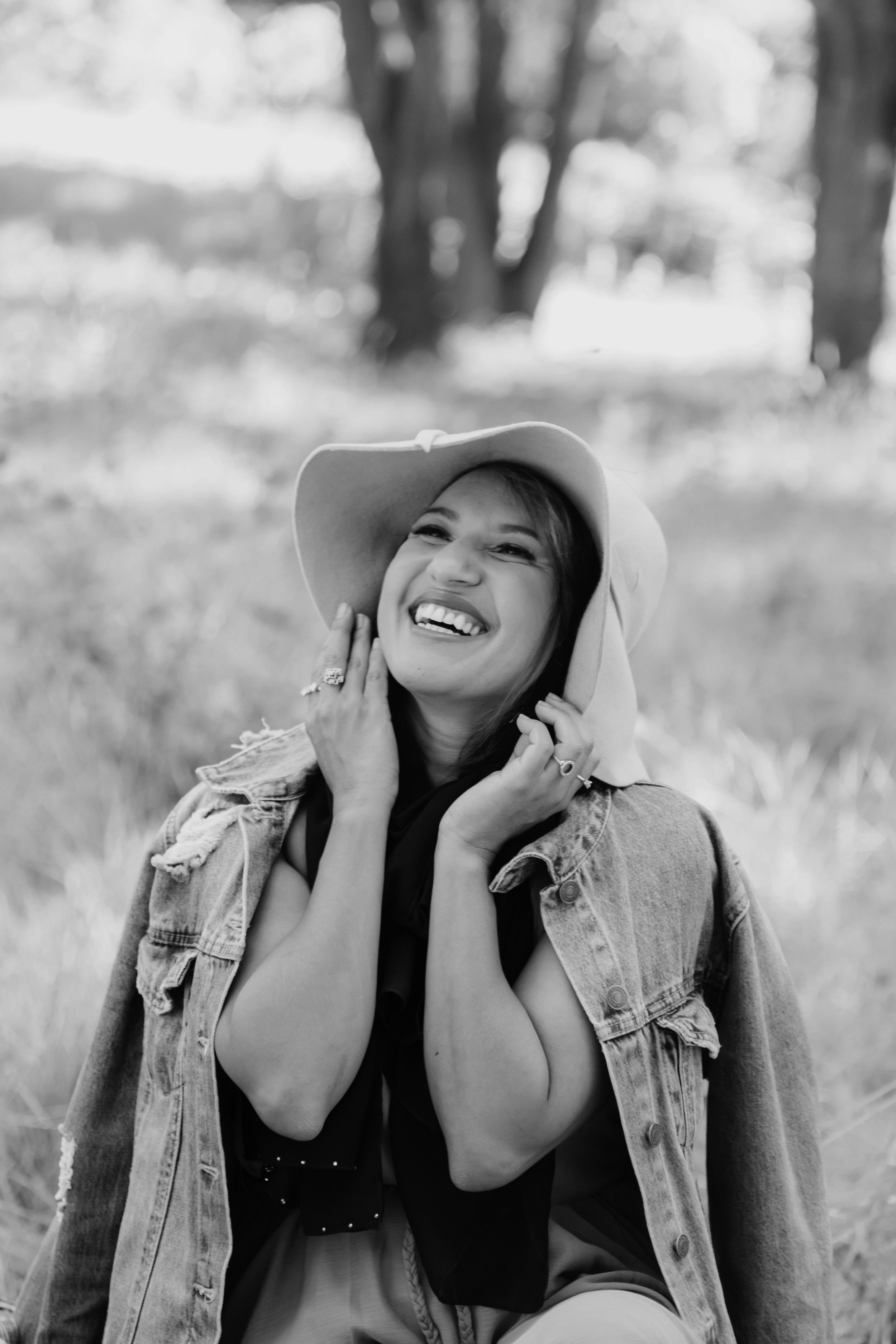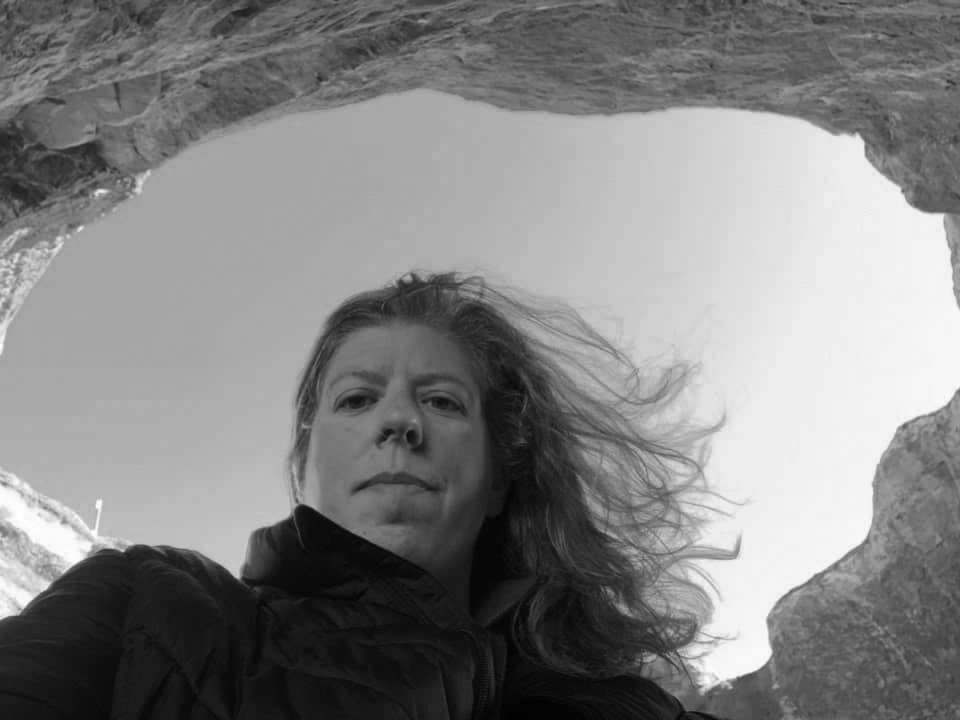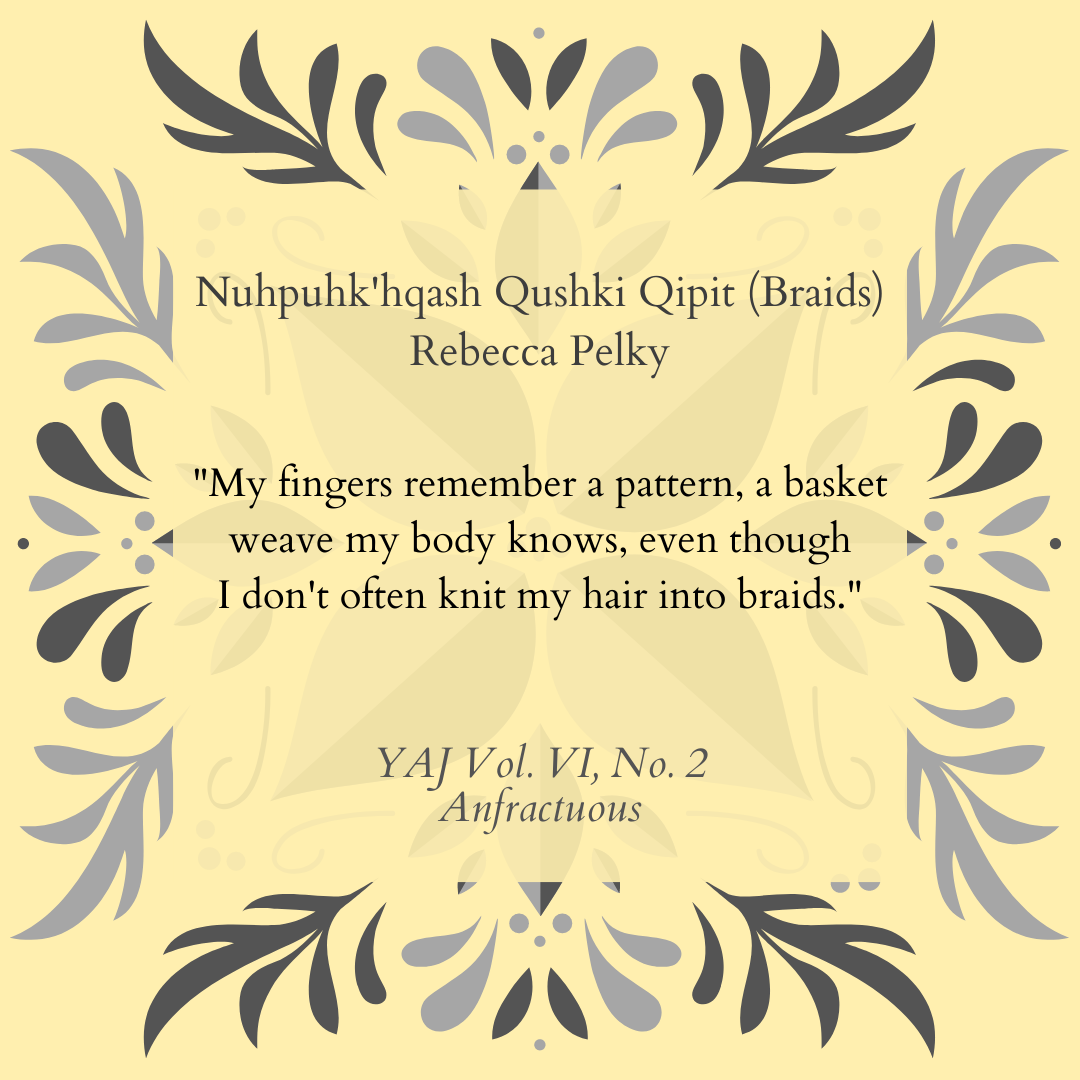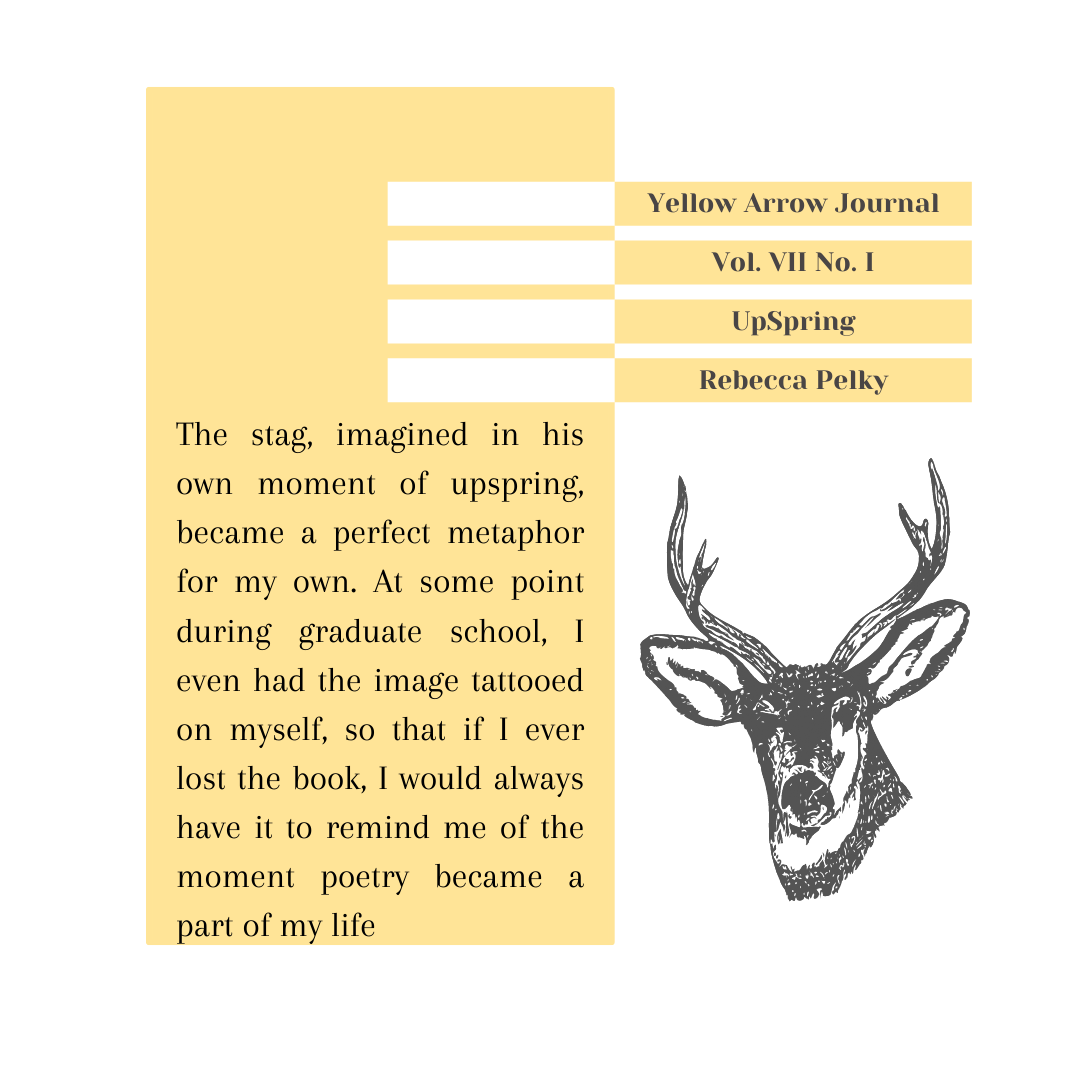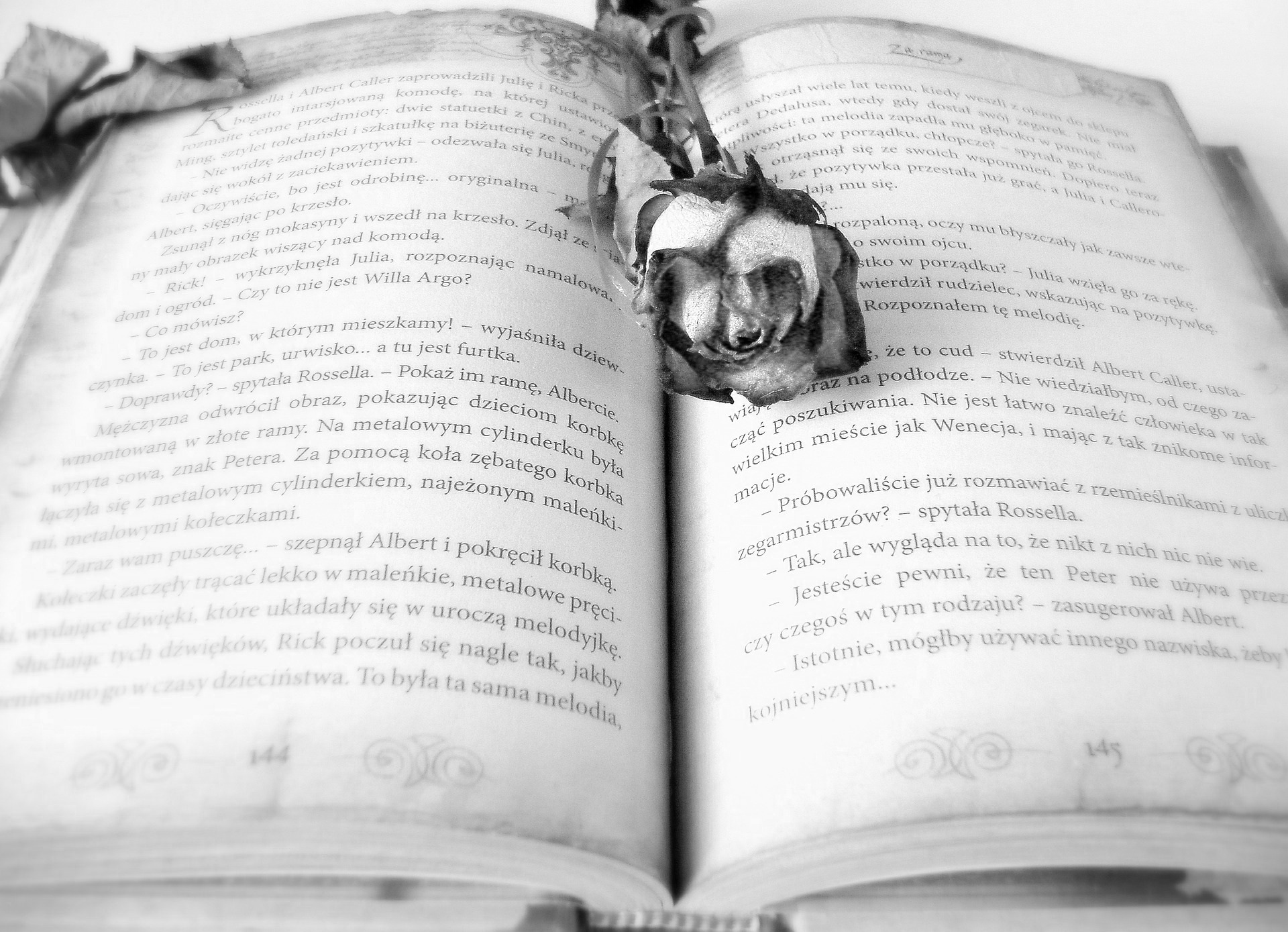
.WRITERS.ON.WRITING..Writers.on.Writing.
Get to know our authors, the foundation and heart of Yellow Arrow Journal, and what writing means to them through our monthly series.
W.o.W. #59
Rashna Wadia
What word do you find yourself using most often in your writing?
“Body.” I’m fascinated by the word’s complexity. Lately, I’ve been writing about our bodies' relationship to time and aging. I'm interested in understanding how history, topography, and language shape what we experience in our bodies.
If you didn’t write, what would you do?
I would dance. I love how music inspires freedom in my body so that I can move the way I want depending on my emotions. I wouldn’t follow any structure, steps, or routines; I would just move to the music and my mood.
If you could have dinner with anyone, who would it be and why?
Lucy Maude Montgomery. At a young age, I fell in love with Lucy’s writing and felt a deep connection to her characters. In college, I traveled with a group of friends to Prince Edward Island for the first time and it was just as magical as Lucy had described in her novels. I’ve returned several times since then and now it’s one of my happy places. I imagine the two of us listening to the ocean, sipping tea together, and chatting like old friends.
What does your inner writing voice tell you?
I am worthy.
Rashna Wadia is an empath and Parsi poet living in the San Francisco Bay Area. She offers creative writing workshops for children and is the poetry editor for the Fahmidan Journal. Currently, she’s working on her first book length poetry collection and a chapbook on womanhood and aging. Her work examines political, social, and spiritual fragmentation in our society and what it means to belong amidst othering. She wants her poems to be the hug, the welcoming embrace, the validation we all need when we feel excluded. Her work has received support from VONA/Voices, Open Mouth, and Kenyon Review Writer’s Workshops. You can find her poems in Catamaran, Whale Road Review, Terrain.org, Tinderbox, Yellow Arrow Journal, Salt Hill Journal, and elsewhere.
Her poem “Open Spaces” was included in Yellow Arrow Journal ANFRACTUOUS, Vol. VI, No. 2, Fall 2021. You can find Rashna reading her poem with other ANFRACTUOUS authors in An Exploration of Belonging: The Anfractuous Reading on the Yellow Arrow YouTube Channel.
Learn more about Rashna by reaching out to her at writersgarden4kids@gmail.com.
.Writers.on.Writing.
Get to know our authors, the foundation and heart of Yellow Arrow Journal, and what writing means to them through our monthly series.
W.o.W. #51
Jesenia Chávez
Describe an early experience where you learned that language has power.
Walking into kindergarten, I did not know English. I knew Spanish and I felt worried and scared. I did not know how to ask to go to the bathroom, but the teacher figured it out. This taught me the importance of language at an early age. I have two older siblings and they would make up words that were English, like “perota,” for ball in Spanish, as if adding the “r” sound made it English. Being a native Spanish speaker, playing with language, learning English, and watching my parents struggle to learn it and their beautiful accents, these experiences taught me early on the power of language.
What does your inner writing voice tell you?
It tells me to write about the powerful women in my life, the beauty in the day-to-day interactions, visions and contradictions that are all around us and inside us, too. It tells me to let it flow girl!
What is your writing Kryptonite? Your most interesting writing quirk?
My Kryptonite is self-doubt and fear, as these stop me from writing. I don’t really have an interesting writing quirk—I like stories and story-type poems; these color my words and provide them with a home.
What are you currently working on?
I am working on being a kind human to the children and families I work with at my school with my teaching. I am working a poetry collection with Alegría magazine and also a pandemic-born storytelling podcast called Que Me Cuentas, a mostly Latinx storytelling podcast. I am working on my confidence and embracing the words poet, writer, and storyteller one line at a time.
Jesenia Chávez is a proud Chicanita, public school teacher, writer, poet, and storyteller. Her writing is inspired by her parents’ migration to Los Angeles from Chihuahua, Mexico, her teaching career, her sense of loss in the rapidly changing landscape of Los Angeles, and all the small moments in between when she can catch her breath and put pen to paper. She has also recently ventured into the podcasting world by cohosting Que Me Cuentas, a mostly Latinx storytelling podcast with a friend. She believes in the healing power of poetry, dancing, nature and lots of hugs. Her piece “Uprooted Roots” was included in Yellow Arrow Journal Vol. VI, No. 2, ANFRACTUOUS.
Jesenia participated in “An Exploration of Belonging: The Anfractuous Reading” last year. You can hear her read “Uprooted Roots” below and find the reading in its entirety on the Yellow Arrow YouTube channel. Learn more about Jesenia on Instagram @chabemucho and @quemecuentaspod.
.Writers.on.Writing.
Get to know our authors, the foundation and heart of Yellow Arrow Journal, and what writing means to them through our monthly series.
W.o.W. #45
Keshnie July
What is a book you wish someone would write?
The Autobiography of a Brown Girl, which I plan to write
What is your writing Kryptonite? Your most interesting writing quirk?
I write like I speak and can sometimes use unnecessary words. My quirk is that I tend to overstate a point.
Describe an early experience where you learned that language has power.
I was always interested in learning new words. I would practice the words learnt in school in every day conversation. When I heard that one of the adults had said, “Who does she think she is using big, big words,” I realised that a child could not even practice a new word without being judged for it. More importantly it made adults uncomfortable.
What does your inner writing voice tell you?
“You have to write a book.”
Keshnie July is a happily married mother to two gorgeous children and lives in beautiful South Africa. She has written for herself, albeit off and on through the years. Her favorite is poetry, however she has always hoped to write a book one day. This opportunity has been a call to fulfill a longheld dream to write and share her work with the world. Her piece “What is in a Name?” was included in Yellow Arrow Journal, Vol. VI, No. 2, ANFRACTUOUS. Keshnie participated in “An Exploration of Belonging: The Anfractuous Reading” last year. You can hear her read part of “What is in a Name?” below and find the reading in its entirety on the Yellow Arrow YouTube channel.
Find Keshnie on Instagram @keshjuly or Facebook @keshnie.july.
.Writers.on.Writing.
Get to know our authors, the foundation and heart of Yellow Arrow Journal, and what writing means to them through our monthly series.
W.o.W. #42
A’Eysha Kassiem
Describe an early experience where you learned that language has power.
I am a black woman who grew up in Apartheid South Africa. Apartheid was not just a system designed to oppress and discriminate, but it also classified everyone who was not white as lesser. There were various derogatory terms that white South Africans used to refer to people of color to reinforce their otherness. I was nine years old when a white boy used this terminology in reference to me—an insult that was meant to inflict harm in a way like nothing else could. It was my first lesson in how words can also be weapons that are sometimes harder to heal from than any physical wound.
If you didn’t write, what would you do?
I would be an archaeologist—I love history and exploring ancient ruins. So a black, female, Muslim, South African Indiana Jones (hit me up for a script, Netflix! Wink wink!)
What does your inner writing voice tell you?
Me: This sentence is brilliant!
Also me: This is the worst sentence that has ever been written in the history of the world!
A’Eysha Kassiem is an award-winning South African writer and journalist, whose work has appeared in several international publications. Her debut novel, Suitcase of Memory, was awarded the 2022 University of Johannesburg’s Creative Writing Fiction Prize for a debut novel. Her piece “The Suitcase” was included in Yellow Arrow Journal, Vol. VI, No. 2, ANFRACTUOUS. A’Eysha participated in “An Exploration of Belonging: The Anfractuous Reading” last year. You can hear her read part of “The Suitcase” below and find the reading in its entirety on the Yellow Arrow YouTube channel.
You can find her on Instagram @aeyshakassiem and @suitcase.of.memory, on Facebook @aeysha.kassiem, and on Twitter @a_kassiem. Visit her website at aeyshakassiem.com.
.Writers.on.Writing.
Get to know our authors, the foundation and heart of Yellow Arrow Journal, and what writing means to them through our monthly series.
W.o.W. #40
Rebecca Pelky
If you could have dinner with anyone, who would it be and why?
My grandmother, Mable Moon, who died before I was born, and who everyone says I most resemble, or maybe my great-grandfather, William Moon, who survived the Carlisle Indian Boarding School. Or maybe a grandmother from even further back, before boarding schools and missionaries stripped away so much of our traditional culture.
What does your inner writing voice tell you?
Lately it reminds me that I’m not only writing for myself, but also for my ancestors, who maybe didn’t have the chance to speak out like I do.
Describe an early experience where you learned that language has power.
When I was in Junior High (middle school in today’s lexicon), a (white, male) history teacher told my mom that I would never amount to anything because I came from a “broken home.” Those words did have power, but not in the way he might have expected. They only made me push harder to prove him wrong.
Rebecca Pelky holds a PhD from the University of Missouri, an MFA from Northern Michigan University, and is an assistant professor of Film Studies at Clarkson University. She is a member of the Brothertown Indian Nation of Wisconsin and a native of Michigan’s Upper Peninsula. Through a Red Place, her second poetry collection and winner of the 2021 Perugia Press Prize, was released in September 2021. Her first book, Horizon of the Dog Woman, was published by Saint Julian Press in 2020. Rebecca was one of Yellow Arrow’s ANFRACTUOUS poets with her incredible piece “Nuhpuhk’hqash Qushki Qipit (Braids)” and guest editor of Yellow Arrow Journal’s Vol. VII, No. 1 UpSpring.
Rebecca participated in “An Exploration of Belonging: The Anfractuous Reading” last year. You can hear her read her poem below and find the reading in its entirety on the Yellow Arrow YouTube channel.
You can also see Rebecca host the “Moments in Time: An UpSpring Reading” on YouTube. To learn more about Rebecca, you can find her on Instagram, Facebook, and Twitter, or visit rebeccapelky.com.







